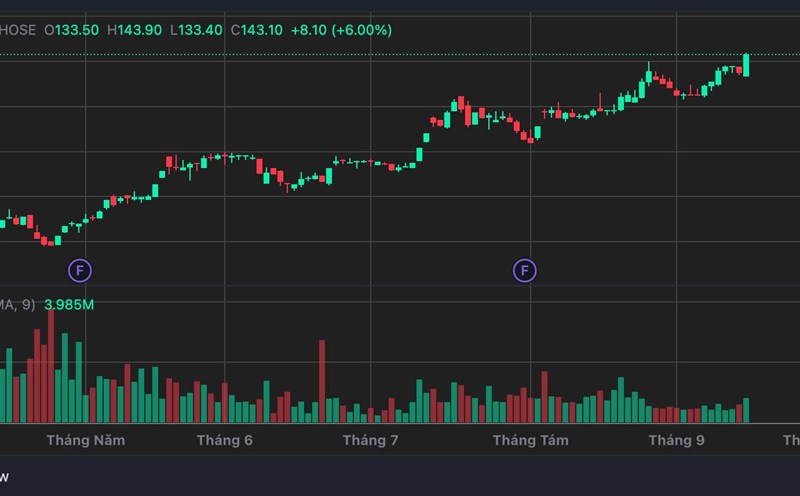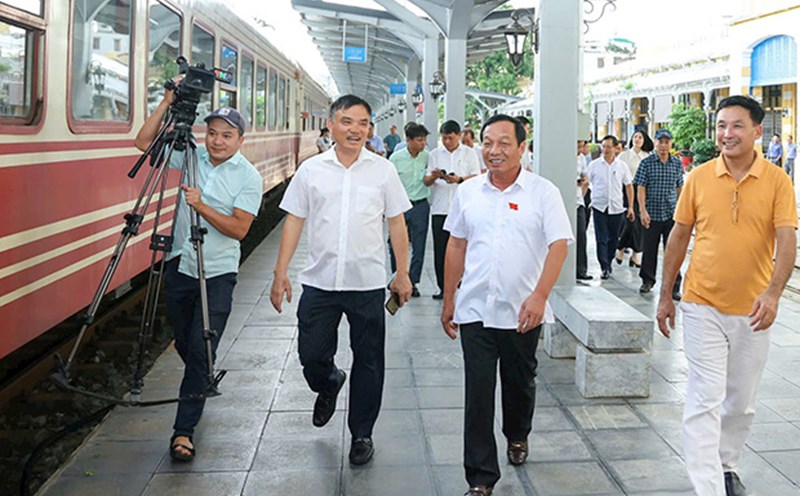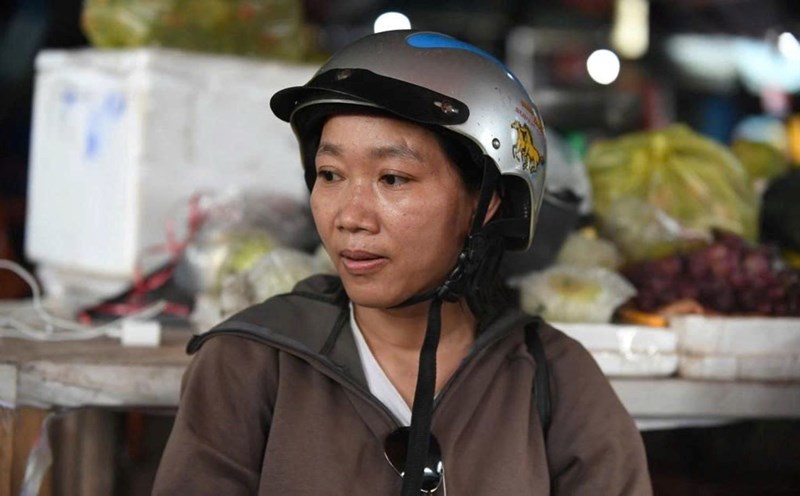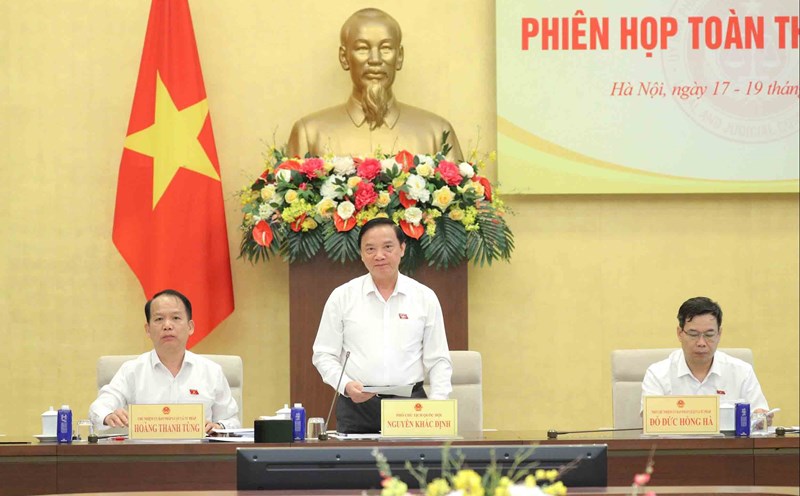These are Resolutions No. 70-NQ/TW on ensuring national energy security until 2030, with a vision to 2045; Resolution No. 71-NQ/TW on breakthroughs in education and training development and Resolution No. 72-NQ/TW on a number of breakthrough solutions, enhancing protection, care and improving people's health.
From the Four pillars to the fundamental Resolutions
4 months ago, on May 18, the Party Central Committee held a national conference to disseminate and implement Resolution No. 66-NQ/TW and Resolution No. 68-NQ/TW of the Politburo. Here, General Secretary To Lam emphasized 4 resolutions: Resolution No. 57-NQ/TW on breakthroughs in science, technology, innovation and national digital transformation development; Resolution No. 59-NQ/TW on "international integration in the new situation"; Resolution No. 66-NQ/TW on innovation in law-making and enforcement to meet the requirements of national development in the new era; Resolution No. 68-NQ/TW on private economic development is the "four pillars" to help Vietnam take off.
The four important Resolutions issued by the Politburo in recent times will be the foundational institutional pillars, creating a strong driving force to move our country forward in the new era, realizing the vision of Vietnam's development and high income by 2045 - the General Secretary said.
However, to implement pillarful resolutions, it is still necessary to highlight fundamental resources. For example, to implement Resolution No. 57-NQ/TW on breakthroughs in science, technology development, innovation and national digital transformation, what needs to be done right now is to urgently build a new generation of citizens with knowledge, mastery of technology and high innovation potential. This depends on the issue of education and training. If education and training remain "stuck in place", it will create a gap in human resources in the future.
In the article Future for the generation to rise up published in March 2025, General Secretary To Lam raised the issue: Vietnam must carefully prepare a young generation that meets strict standards on human resources for integration and sustainable development.
Accordingly, the General Secretary requested the intelligence that the young generation of Vietnam today needs more than ever the ability to be creative, critical thinking and the ability to quickly handle changes in technology. "However, intelligence alone is not enough. Healthy physical condition and strong courage are also indispensable conditions for the younger generation to adapt and develop in an increasingly fierce global competitive environment. A generation of young people with physical health will ensure high-quality labor resources, contributing to the cause of building and defending the country. Therefore, physical education needs to be focused on more, combined with building a community health system and modern sports facilities to improve overall health and enhance the stature of Vietnamese people - the General Secretary requested.
Resolutions No. 71-NQ/TW on education and training development, Resolution No. 72-NQ/TW on protection, care and improvement of people's health have become thematic resolutions in line with this requirement.
Resolution 71 affirms: "Education and training are the foundation of sustainable development, the key to opening up the future". For the country to rise strongly, it must start with fundamental and comprehensive reform of the education system. According to this document, by 2030, Vietnam's preschool and general education will reach advanced levels in the region, 100% of higher education institutions and at least 80% of vocational education institutions will meet national standards. By 2045, the national education system will be modern, fair, quality and among the top 20 countries in the world.
It is noteworthy that Resolution 71 not only emphasizes the transmission of knowledge but also aims to build comprehensive capacity for the new generation of citizens: German, intellectual, physical, and aesthetic. A generation with knowledge, professional skills, creativity and good personality will be the foundation for forming a knowledge society, digital economy and developed culture. From teacher treatment, increasing allowances, to the application of digital technology and artificial intelligence in teaching and management, or expanding fair learning opportunities for children in remote areas, Resolution 71 all set out specific solutions. Therefore, this document is expected to turn Vietnamese education into a driving force for national development.
If education provides knowledge and skills, then health is the foundation for human resources to maximize their value. Resolution 72-NQ/TW was born with the consistent viewpoint: Protecting, caring for and improving people's health is the goal, the driving force, and the top political task.
The specific goal by 2030 is clearly set: The average life expectancy of Vietnamese people will reach 75.5 years, the minimum number of years of healthy living will be 68, the average height of children and adolescents will increase by at least 1.5cm. The grassroots health system must be strengthened, preventive medicine becomes the focus, and public health insurance is expanded in both coverage and quality.
To realize this, the resolution proposes breakthrough solutions: Going towards hospital fee exemption, regular health check-ups for all citizens; reforming health finance, mobilizing socialization, developing private healthcare; applying science and technology in diagnosis and treatment, proactively producing drugs, vaccines, and medical equipment in the country; at the same time improving treatment for medical staff, especially at the grassroots level and in disadvantaged areas. Resolution 72 does not stop at treating diseases but has completely shifted the mindset to disease prevention, improving physical strength, intelligence and quality of life - an orientation in line with global trends.
The important intersection is that both resolutions have the same goal: Building comprehensive human resources. A country with a high-educational population but poor health can hardly become a driving force for development, while a country with a healthy population but lacking knowledge and skills will have difficulty competing in the era of artificial intelligence and globalization. Only when the two factors complement each other, will Vietnam's human resources truly become a competitive advantage.
Ready material resources for development
In parallel with human resources, a country that wants to rise to power must also have a solid material foundation. Resolution 70-NQ/TW on ensuring national energy security issued in August 2025 is a pillar to create material resources, ensuring the "blood flow" to operate the economy and society.
Without electricity, without energy, all development plans become extremely difficult. Industry, transportation, high-tech agriculture, digital services or people's lives... are all connected to energy. Resolution 70 clearly identifies energy security as a vital issue of the country, a foundation for implementing socio-economic, defense, security and foreign affairs goals. In the context of rapidly increasing energy demand, it is forecasted that by 2030, Vietnam will need to double the current electricity output, the resolution emphasizes the urgent requirement of synchronous development, diversification of supply sources, improving efficiency of use, promoting green transformation and international integration.
The Resolution has clearly defined the role of energy as a basic material resource. Energy helps ensure stable production, maintain business operations, reduce costs and increase productivity. A modern, safe and sustainable energy infrastructure is also an important plus to attract international investment, especially in the context of global corporations increasingly focusing on green and clean factors. Energy security is also an inseparable factor of national security, because there cannot be a strong defense without electricity, gasoline, and gas. And above all, energy is directly associated with daily life, from village lamps to high-tech equipment in each family, improving the quality of life of the people.
Vietnam has the potential to become a renewable energy hub in the region, with the advantage of wind and solar. Modernizing energy infrastructure will help the country improve competitiveness and reduce the risk of power shortages that have occurred in the past. People in rural, mountainous and island areas will directly benefit from access to sustainable, cheaper and cleaner energy sources. The Resolution also affirms the synchronization in strategic thinking: National development must not only rely on human resources but also have a solid material foundation. This is a parallel pair for Vietnam to move forward firmly towards the goal of 2045 - becoming a developed country with high income.
The three resolutions 70, 71, 72 on energy, education and health are not just individual documents but have a connecting nature: Energy to ensure material things, education to improve knowledge, health care for health care. A strong Vietnam must have both smart and healthy citizens and a strong and sustainable enough energy foundation to help the development aspiration. Investing in today's energy is investing in the future of the whole nation.
Prime Minister Pham Minh Chinh: The Government has issued an Action Program to implement Resolution 71-NQ/TW
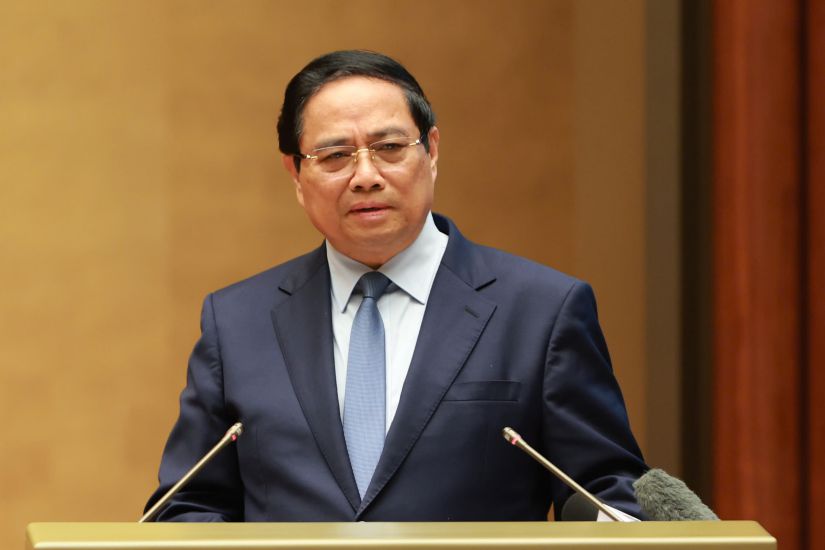
Immediately after the Politburo issued Resolution 71, the Government organized research and developed an Action Program to implement Resolution 71 with a very serious and urgent working spirit and issued an Action Program in Resolution No. 281/NQ-CP dated September 15, 2025.
The Government's action program includes 8 groups of tasks and major solutions, concretized into 36 goals and 151 tasks. In particular, specific tasks have been assigned to each ministry, branch and locality with the spirit of "6 clear: Clear people, clear work, clear responsibilities, clear authority, clear time, clear results" and ensuring resources for implementation.
In 2025, the Government will continue to promote the improvement of institutions and policies; urgently review and evaluate the implementation of the General Education Program to make appropriate adjustments; develop a roadmap and immediately implement policies on salary and allowance regimes for teachers, managers and staff in the education sector.
Deputy Prime Minister Le Thanh Long: The State will spend 25,000 billion VND to provide free periodic health check-ups for people
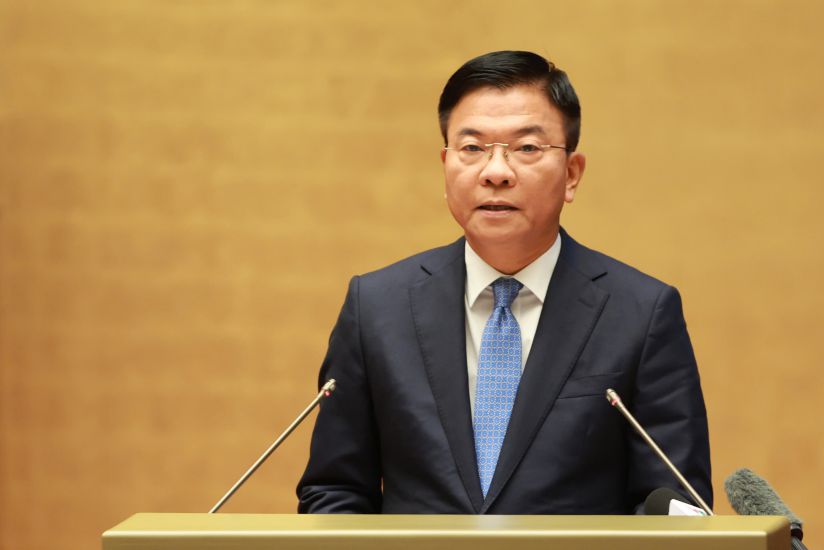
Presenting Resolution 72, Deputy Prime Minister Le Thanh Long informed: Regarding the funding for periodic health check-ups or free screening for people. Vietnam's total population is 100 million people with each examination costing about 300,000 VND, which requires 30,000 billion VND. Of which, the number of employees (about 16 million people) who are periodically examined and screened must be paid by the employer, which is about 4,800 billion VND. Therefore, the estimated State budget to be spent is 25,000 billion VND.
The third funding group is the hospital fee exemption policy. Based on estimates, the Ministry of Health collects data for 2024, the health insurance fund will pay about 140,000 billion VND, patients will pay about 21,545 billion VND. If calculated like that, from 2026, the State must spend a maximum of VND 21,545 billion/year. Currently, the outstanding health insurance balance is about 49-50 trillion VND, which can be paid for the first 2 years, then, a roadmap must be calculated to increase health insurance revenue to gradually balance. The Ministry of Health and the Government have calculated relatively carefully and found it feasible, and can balance it in the coming time.
Head of the Central Committee for Policy and Strategy Nguyen Thanh Nghi: Spending over 2% of GDP on energy research and development
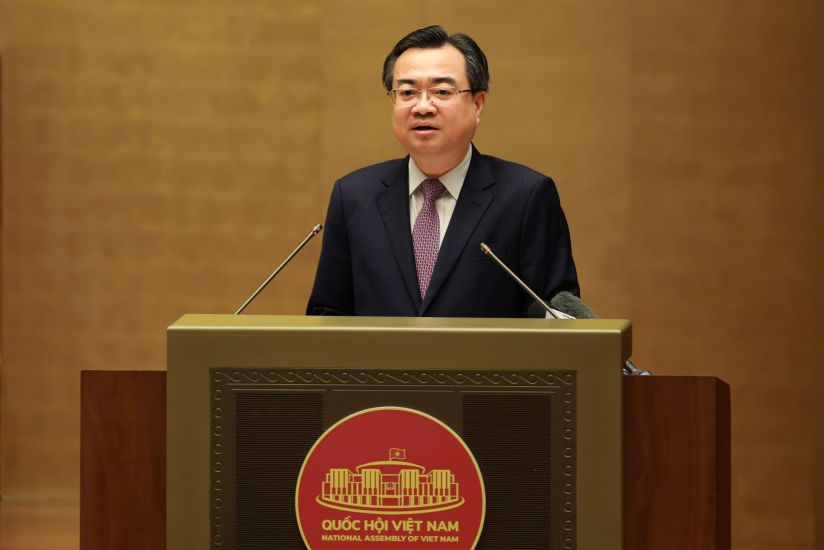
Presenting on Resolution 70-NQ/TW, Head of the Central Committee for Policy and Strategy Nguyen Thanh Nghi informed: Regarding science, technology and innovation, Resolution 70 determines investment of ≥2% of GDP in energy R&D; promotes the transfer of advanced technology, clean technology, digital transformation; builds research and innovation centers, key laboratories; attracts 60-80 technology projects; develops power grids and smart energy management.
Regarding high-quality human resources, the resolution identifies promoting the linkage of science - training - enterprises; developing key energy human resources; training 25,000 - 35,000 engineers and experts, especially in nuclear, renewable and new energy; policies to attract domestic and foreign experts.
Acting Minister of Foreign Affairs Le Hoai Trung: Vietnam aims to be ranked 33rd or higher in national brand rankings
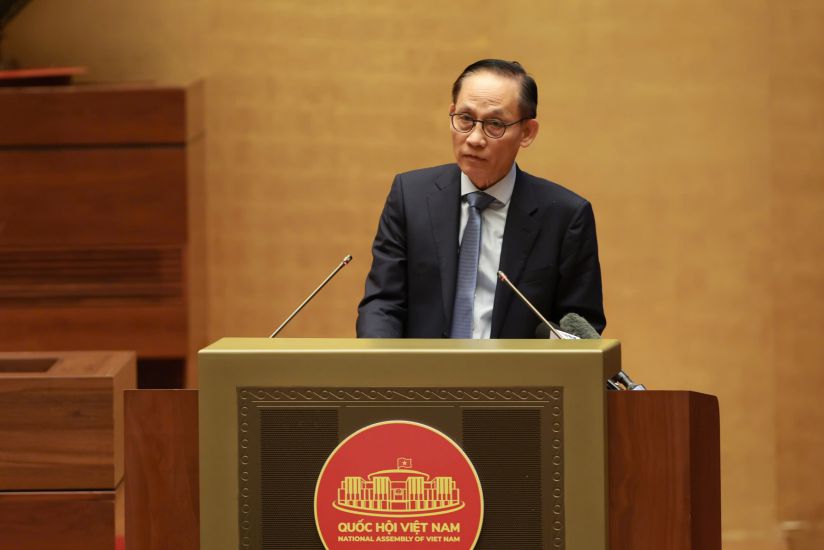
Resolution No. 59-NQ/TW sets out a general goal of contributing to maintaining a peaceful and stable environment, practically contributing to the development and protection of the country early and from afar; making the most of external resources and favorable conditions to build an independent, self-reliant, self-reliant, self-reliant economy with rapid and sustainable development; strengthening the combined strength of the country, enhancing the role, position and international prestige of Vietnam to strive for by the middle of the 21st century, our country will become a developed country with high income in the socialist orientation...
The Government issued Resolution No. 153/NQ-CP, dated May 31, 2025, promulgating the Government's Action Program to implement Resolution No. 59-NQ/TW. According to the Action Program, the Government sets out a number of specific targets by 2030 such as: Standing 33rd or higher in national brand rankings; the rate of enterprises participating in the global value chain is over 21%; expanding diplomatic relations with over 194 countries; Vietnam's participation in multilateral cooperation with over 70 regional and international organizations; ranking in the Global Innovation Index from 40th or higher; global ranking in the index of sustainable development goals of the United Nations (SDGs) is from 55th or higher.



According to Vice Chairman of the National Assembly's Committee on Culture and Society Ta Van Ha, these 4 resolutions create a unified body, orienting comprehensive development, balancing socio-economic, human and environmental development, and sustainable development factors. The contents of energy, education, health care and international integration are closely linked to realize the aspiration for a strong and prosperous Vietnam. Resolution 59 paves the way for integration; Resolution 70 ensures the energy foundation; Resolution 71 prepares high-quality human resources; and Resolution 72 cares for people's health.
As the General Secretary thoroughly grasped at the national conference, the new driving force for the country's development is formed from the organic linkages between the resolutions. International integration is the door to the world; Stable and green energy is a necessary condition for production, for schools and hospitals; High-quality education and training providing a team of systems engineers, doctors, and future public service administrators; Modern healthcare, strong prevention, good care to help people stay healthy to learn, to work, and to be creative - Mr. Ta Van Ha quoted the General Secretary at the National Conference to thoroughly grasp and implement the Resolution and together stated that when each of these pillars is consolidated and operated smoothly, the country will develop sustainably. WORKing A journey


